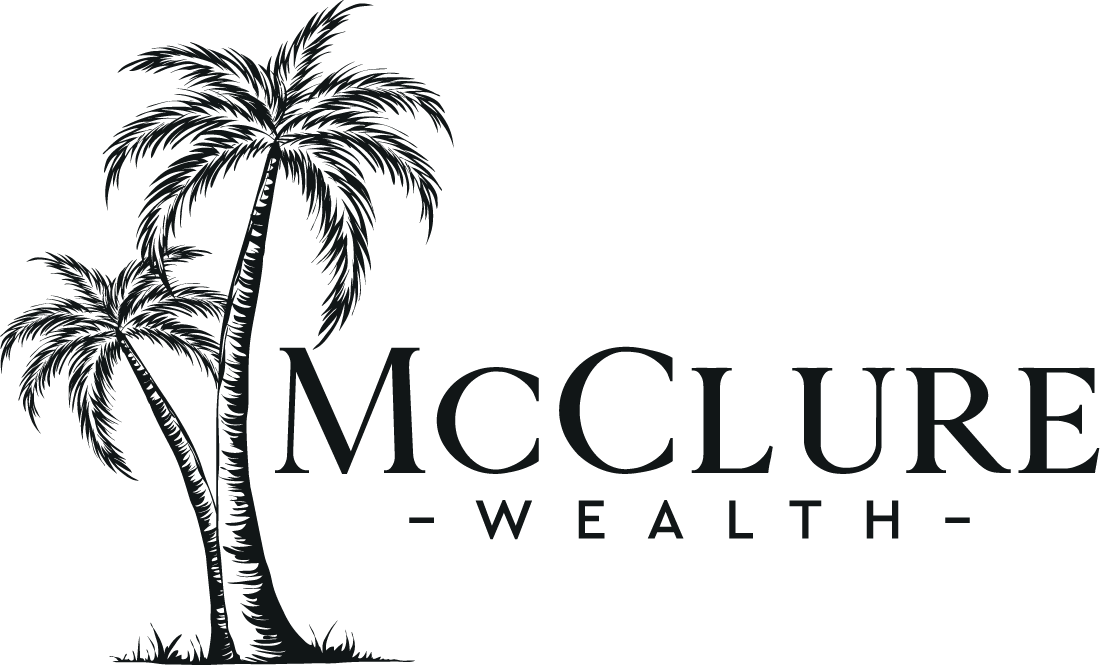By Ed McClure, CFP®, PPC®
While the word “debt” often carries a negative meaning, don’t be misled by its reputation. Undoubtedly, there are risks to taking on debt, but looking at the flip side may reveal a powerful tool for advancing toward your goals.
At its core, debt is an obligation to repay borrowed funds, which often comes with interest. However, it’s vital to realize that not all debts are created equal. Good debt serves as a catalyst for reaching important milestones, such as obtaining a mortgage-free homeownership status or graduating from college without the burden of debt.
In this article, we’ll explore how to tell if a debt will support your financial wellness and the types of debt you may want to avoid.
What Is Good Debt?
The term “good debt” describes debt that has the potential to increase your net worth or improve your financial situation over time. Ultimately, the strategy behind that debt outweighs the cost of borrowing. This is ideally low-interest-rate debt with affordable repayment terms.
This would be the case if your debt was used to purchase an asset that appreciates over time. It might also be considered good debt if it’s used to invest in learning skills that could increase your income over time.
Good Debt Examples
There are several affordable forms of debt that could help you increase your net worth or improve your finances. Here are three of the most common examples of good debt:
- Mortgages: A mortgage allows you to purchase a home that you likely wouldn’t be able to pay for outright. A home is likely to appreciate in value, and interest rates are generally lower compared to other forms of borrowing.
- Car loans: Having reliable transportation is a necessity for many people. If you don’t have the cash on hand to buy a car, a car loan facilitates the purchase. It might enable you to take a higher-paying job or accept other income opportunities. Just be sure your car loan is affordable or it could easily qualify as a bad debt.
- Student loans: Having a degree doesn’t guarantee a high-paying job, but it does improve your chances of earning more over your lifetime. As of 2022, the Federal Reserve reports that recent graduates with a bachelor’s degree earn a median of $54,000 compared to high school graduates earning a median of $34,320.
What Is Bad Debt?
Bad debt makes your financial situation worse and is typically used to buy consumer goods or to purchase something that loses value over time. Bad debt typically carries high interest rates, fees, and even unreasonable repayment terms. It can become a financial nightmare if not managed properly.
Since bad debt usually has a high interest rate and fees, it’s easy for the compounding interest to snowball out of control and make repayment difficult. A quick way to tell a good debt from a bad debt is to ask yourself whether this will help you make more money in the future.
Bad Debt Examples
There are several forms of borrowing that are considered bad debt. The only one that’s ambiguous here is a personal loan.
- Credit card debt: Most credit cards have high compounding interest that comes into play when you hold a balance month after month. If you have rates over 20%, it means you’re paying significantly more for each purchase you’ve made on that credit card.
- Payday loans: This type of predatory debt is banned in many states. Payday loans often have interest rates of almost 400% paired with excessive hidden fees, which can make paying off your debt nearly impossible.
- Personal loans: A “bad debt” personal loan would be one used to finance purchases such as a vacation, new furniture, or a new wardrobe—things that don’t appreciate in value. However, a personal loan used to consolidate high-interest debt could be a good debt.
Is Having Debt Ever a Good Thing?
So, is having debt ever a good thing? The answer is yes—but with some caveats. Certain types of debt can help you get ahead and build a greater net worth over time when managed well. Other forms of debt could create financial pitfalls that make it even harder to experience a life of financial freedom.
Having debt isn’t inherently good or bad; it’s about the type of debt you choose and how you manage it. Making smart borrowing decisions begins with paying attention to factors such as how much you’re paying to borrow the money (interest charge), the purpose of the debt, and your ability to repay it.
Partner With a Trusted Professional
Deciding on the types of debt to support your overall financial plan can be a confusing process. When your dreams include reaching a level of financial freedom, collaborating with a financial advisor can be one of the most important decisions you make to realize this goal. An experienced professional creates a plan that addresses all types of debt that may be hindering or helping your progress.
At McClure Wealth Management, we are here and ready to assist you on this journey. To take the first step, please don’t hesitate to give me a call at (760) 607-0611 or email [email protected] to set up a consultation.
About Ed
Ed McClure is a CERTIFIED FINANCIAL PLANNER™ practitioner, Professional Plan Consultant® (PPC®), and founder of McClure Wealth Management. With over 25 years of experience, Ed works with business owners who want to maximize their retirement plan benefits, businesses that need help setting up and managing a 401(k) for their employees, and families who want guidance while planning their futures. He is known for simplifying complicated and intimidating topics and making wealth management concepts easy for others to remember and understand.
Ed has established himself as a trusted resource for business owners and individuals, and his mission is to help his clients achieve the financial independence and well-being they deserve so they can give their time and energy to the people and things they love. He has a bachelor’s degree in finance from the University of Illinois. In his spare time, Ed conducts financial workshops for the Just In Time for Foster Youth organization, which helps equip young men and women as they come out of the foster care system. He also loves to travel and spend time with his favorite people. To learn more about Ed, connect with him on LinkedIn.





